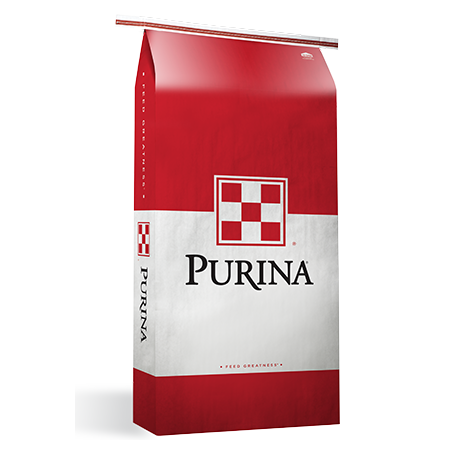Purina Sheep & Goat Receiving Ration 14 DX
 Purina Sheep and Goat Receiving Ration 14 DX .0033 is a complete feed for young, growing lambs and goats. This pelleted ration is formulated with LambitineTM technology. As a result, it helps to support immune competence and optimize feed consumption.
Purina Sheep and Goat Receiving Ration 14 DX .0033 is a complete feed for young, growing lambs and goats. This pelleted ration is formulated with LambitineTM technology. As a result, it helps to support immune competence and optimize feed consumption.
Purina Sheep and Goat Receiving Ration 14 DX .0033 is mediated with Deccox to aid in the prevention of coccidiosis in young sheep and young goats.
Have questions? Reach out to our friendly staff at any of our local Farmers Co-op locations. Also, be sure to follow us on Facebook for product updates, news and events.
Guaranteed Analysis
Crude Protein MIN 14.50 %
Phosphorus (P) MIN 0.60 %
Vitamin A MIN 7,500 IU/LB
Selenium (Se) MIN 0.30 PPM
Feeding
Feed at a rate of 1.51 lbs to sheep/goat weighing 100 lbs to provide 22.7 mg decoquinate per 100 lb of bodyweight (0.5 mg/kg) per day. Feed at least 28 days during period of exposure to coccidiosis or when it is likely to be a hazard.
Caution
Bentonite should not be used in decoquinate feeds.
Store in a dry, well-ventilated area protected from rodents and insects. Do not feed moldy or insect-infested feed to animals as it may cause illness, performance loss or death.
USE ONLY AS DIRECTED
Management Practices
Follow these management practices:
- If kids/lambs have not been creep fed, offer grass hay on a free choice basis upon arrival.
- When making a ration change, allow 7 to 10 days for animals to adjust to the new ration.
- Keep a constant supply of complete feed available. Do not let fine material accumulate in feeders.
- Provide adequate bunk space for each animal. Bunks should be well protected and managed to prevent feed from becoming wet or moldy.
- Provide fresh, clean water near the feeding area.
In groups of sheep and goats there are certain animals that experience chronic bloat, or other digestive disturbances and consequently, are poor performers. In addition, excess feed consumption, severe weather changes resulting in erratic feed consumption and poorly managed feeding practices, can increase the incidence of bloat in all sheep and goats. If bloating occurs, management practices should be reviewed and your veterinarian consulted.
Warning
Do not feed to sheep and goats producing milk for food.
 Purina Sheep and Goat Receiving Ration 14 DX .0033 is a complete feed for young, growing lambs and goats. This pelleted ration is formulated with LambitineTM technology. As a result, it helps to support immune competence and optimize feed consumption.
Purina Sheep and Goat Receiving Ration 14 DX .0033 is a complete feed for young, growing lambs and goats. This pelleted ration is formulated with LambitineTM technology. As a result, it helps to support immune competence and optimize feed consumption.